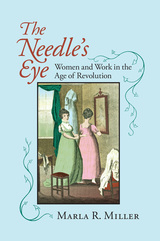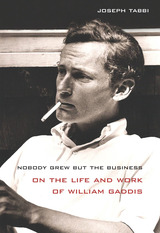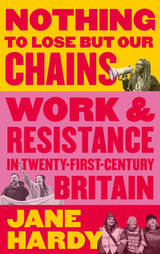5 start with N start with N

In this book, Marla R. Miller illuminates the significance of women's work in the clothing trades of the early Republic. Drawing on diaries, letters, reminiscences, ledgers, and material culture, she explores the contours of working women's lives in rural New England, offering a nuanced view of their varied ranks and roles—skilled and unskilled, black and white, artisanal and laboring—as producers and consumers, clients and craftswomen, employers and employees. By plumbing hierarchies of power and skill, Miller explains how needlework shaped and reflected the circumstances of real women's lives, at once drawing them together and setting them apart.
The heart of the book brings into focus the entwined experiences of six women who lived in and around Hadley, Massachusetts, a thriving agricultural village nestled in a bend in the Connecticut River about halfway between the Connecticut and Vermont borders. Miller's examination of their distinct yet overlapping worlds reveals the myriad ways that the circumstances of everyday lives positioned women in relationship to one another, enlarging and limiting opportunities and shaping the trajectories of days, years, and lifetimes in ways both large and small. The Needle's Eye reveals not only how these women thought about their work, but how they thought about their world.

Known for his sometimes-gritty naturalism and use of Appalachian dialect, Harry Harrison Kroll (1888–1967) was a remarkably prolific Tennessee novelist and short-story writer during the middle decades of the twentieth century. His career spanned two of the three major shifts in publishing during the twentieth century: the heyday and decline of the fiction magazine market during the late 1920s, and the rise of nonfiction and solidification of paperback marketing during the 1950s. Never Been Rich explores details of Kroll’s humble, rural youth, his long delayed education and the development of his craft, before discussing his lengthy career and how it reflected changes in both public taste and the American publishing industry.
Kroll focused on writing not as a high art, but instead on what was popular—what would earn him a living. He preferred to write voluminously rather than exquisitely, and growing up in the rural south provided him with a broad and fertile field of experience to plow for his crop of stories. As a writing instructor, he had a profound influence on his students, particularly the well-known Appalachian triumvirate of James Still, Jesse Stuart, and Don West.
While Kroll may lack grand literary significance, Richard Saunders maintains that we should explore not merely the linguistic and thematic aspects of a writer’s work but also its broad economic and social contexts, including the idea that literature is both an art form and a marketable product in an extensive industry. His study of Kroll delves deeply into those contexts and shows that, while Kroll did not strive for a place among writers of high literature, he exemplifies the far more widely read popular literature of his times.

Finalist, 2016 Society for Midland Authors Award for Biography & Memoir
During his lifetime, William Gaddis (1922–1998) evaded biographical questions, never read from his work publicly, and didn’t allow his photograph to appear on his books. Before his novel J R (1975) won Gaddis the National Book Award and some measure of renown, he had given up the bohemian world of 1950s Greenwich Village for a series of corporate jobs that both paid the bills and provided an inside view of the encroachment of market values into every corner of American culture.
By illustrating the interconnectedness of Gaddis’s life and work, Tabbi, among his foremost interpreters, demystifies the “difficult author” and shows a writer who was as attuned as any to the way Americans talk, and who sensitively chronicled the gradual commodification of artistic endeavor. Illuminating, heartbreaking, and masterful, Tabbi’s book gives us the most subtly drawn portrait to date of one of the twentieth century’s seminal novelists.

Capitalism is a dynamic system, continually adapting itself to exploit workers in new ways. In Britain today, the gig economy is its newest form, expressed through precarious contracts and the supposed atomization of workers. In this book, Jane Hardy argues that despite capitalism’s best efforts to stop us, we can always find ways to fight it.
Through a range of case studies, from cleaners to university lecturers, Hardy looks at how workers are challenging employers’ assaults in the neoliberal workplace, comparing these new actions to a long history of British working class struggle. She explores the historic role of migrants in the British workforce, from the Windrush generation to more recent arrivals from the European Union, as well as placing womens’ collective action center stage. Analysing the rise of robotics and artificial intelligence, she refutes claims that we are entering a post-capitalist society.
Nothing to Lose But Our Chains is an optimistic exploration into the power of the working class, showing that no matter what tools capitalism uses, it can always be resisted.

Capitalism is a dynamic system, continually adapting itself to exploit workers in new ways. In Britain today, the gig economy is its newest form, expressed through precarious contracts and the supposed atomization of workers. In this book, Jane Hardy argues that despite capitalism’s best efforts to stop us, we can always find ways to fight it.
Through a range of case studies, from cleaners to university lecturers, Hardy looks at how workers are challenging employers’ assaults in the neoliberal workplace, comparing these new actions to a long history of British working class struggle. She explores the historic role of migrants in the British workforce, from the Windrush generation to more recent arrivals from the European Union, as well as placing womens’ collective action center stage. Analysing the rise of robotics and artificial intelligence, she refutes claims that we are entering a post-capitalist society.
Nothing to Lose But Our Chains is an optimistic exploration into the power of the working class, showing that no matter what tools capitalism uses, it can always be resisted.
READERS
Browse our collection.
PUBLISHERS
See BiblioVault's publisher services.
STUDENT SERVICES
Files for college accessibility offices.
UChicago Accessibility Resources
home | accessibility | search | about | contact us
BiblioVault ® 2001 - 2024
The University of Chicago Press









